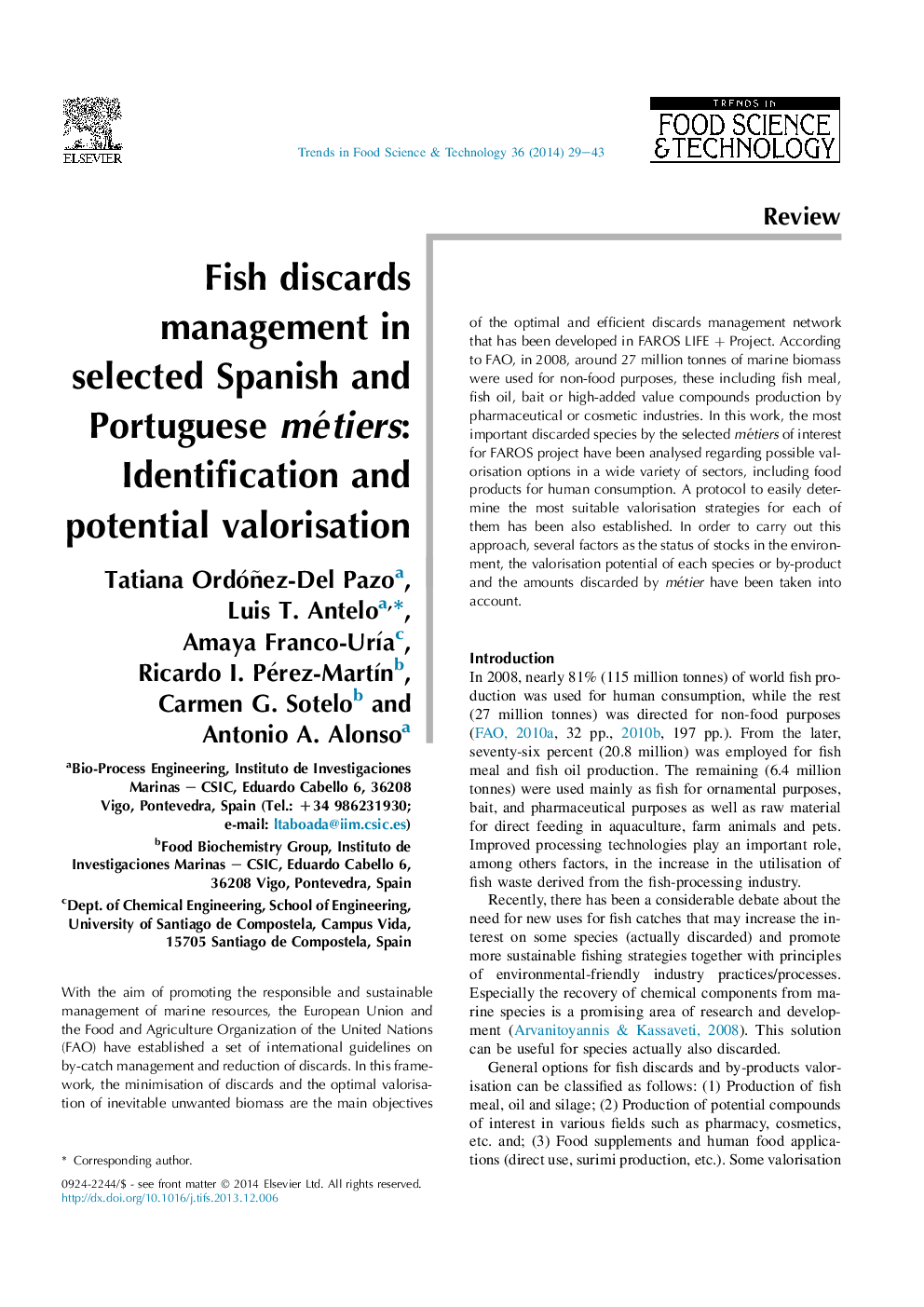| Article ID | Journal | Published Year | Pages | File Type |
|---|---|---|---|---|
| 2098689 | Trends in Food Science & Technology | 2014 | 15 Pages |
•Sustainability of fisheries is a controversial issue objective of European policies.•The valorisation alternatives of inevitable fish discards biomass are discussed.•High-added value products of interest in the food sector are the objective.•A valorisation potential ranking is presented to select the most suitable final use.
With the aim of promoting the responsible and sustainable management of marine resources, the European Union and the Food and Agriculture Organization of the United Nations (FAO) have established a set of international guidelines on by-catch management and reduction of discards. In this framework, the minimisation of discards and the optimal valorisation of inevitable unwanted biomass are the main objectives of the optimal and efficient discards management network that has been developed in FAROS LIFE + Project. According to FAO, in 2008, around 27 million tonnes of marine biomass were used for non-food purposes, these including fish meal, fish oil, bait or high-added value compounds production by pharmaceutical or cosmetic industries. In this work, the most important discarded species by the selected métiers of interest for FAROS project have been analysed regarding possible valorisation options in a wide variety of sectors, including food products for human consumption. A protocol to easily determine the most suitable valorisation strategies for each of them has been also established. In order to carry out this approach, several factors as the status of stocks in the environment, the valorisation potential of each species or by-product and the amounts discarded by métier have been taken into account.
